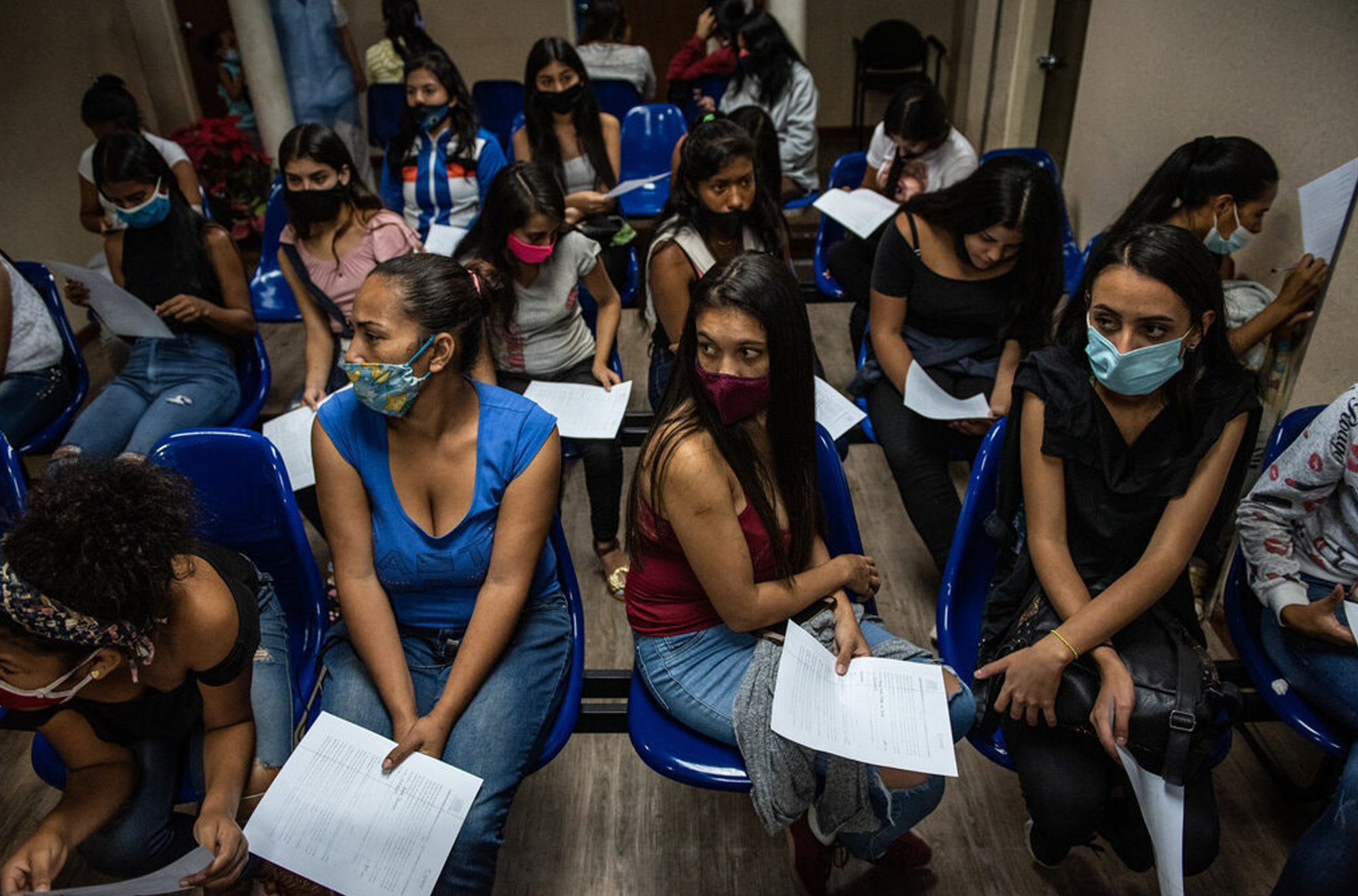
Top image: young women waiting to receive contraceptive implants at a low-cost women’s clinic, Caracas.
A 13-year-old girl in Venezuela was raped at least six times and became pregnant, but the only ones arrested were her mother and a teacher who helped her end the pregnancy. If nothing else, this news forced a national debate about legalising abortion in the country.
Her mother took her to a doctor, who told her the pregnancy endangered her life but didn’t help her, and then a former teacher, who provided pills that induced an abortion. Her teacher ended up in jail, facing more than a decade locked up for helping her, after the mother reported the rapes. So the girl decided she had to speak up. Meanwhile, the accused rapist remained free.
The case was made public in the local and international press earlier this year in Venezuela, and became a point of outrage for women’s rights activists, who say it demonstrates the way the country’s economic and humanitarian crisis has stripped away protections for young women and girls. Among the myriad problems in Venezuela is an eviscerated justice system, leaving many vulnerable to violence. (See our two news reports at the start of the case from 13 January and 20 January 2021.)
The assault on the girl and the arrest of her teacher have become a rallying cry for activists who say it is time for Venezuela to have a serious discussion about legalising abortion. The crisis has curtailed access to birth control, gutted maternity wards and created widespread hunger, denying millions the ability to control their lives.
In January, the president of Venezuela’s National Assembly, Jorge Rodríguez, surprised many by saying he was at least open to a discussion on the issue.
But the penal code, dating from the 1800s, criminalises abortion in nearly all cases, except to save the life of the pregnant woman, if she is found to have a life-threatening condition, which must be reviewed before a hospital ethics board. According to Dr Jairo Fuenmayor, president of the ob-gyn society, very few women are helped that way. Neither the girl in this case nor her mother knew this avenue might have been pursued. But even asking if it’s possible may lead to police involvement.
Activists are hoping that the anger over the 13-year-old’s case, combined with the changes in the region due to the successful law reform in Argentina, will help. In discussions with government officials, they have tried to frame legalisation as a social justice issue, in line with the government’s stated socialist aims.
The girl’s mother said she did not regret what she had done, that any mother would do the same.
Before the economic crisis, there was said to have been an informal policy in which women who ended their pregnancies, or those who helped them, were not prosecuted, according to a former senior prosecutor, to avoid criminalising the victims. But many of the prosecutors who thought that way have fled the country for fear of political persecution.
By December 2020, the girl’s teacher, activist Vannessa Rosales, had been in police custody for two months, sleeping on the floor in a cell with more than a dozen other women, including, for a time, the girl’s mother, who was held for three weeks before being released. Rosales heard from her lawyers that she might be charged not only with facilitating an abortion, but also with conspiracy to commit a crime, which could put her in prison for years. The hearing did not take place that day, and might have to wait weeks more, before a judge took up the case. In January, working with other activists, Rosales’ lawyer decided to go public with the case. The story caused so much internet outrage that Venezuela’s attorney general, Tarek Saab, took to Twitter to clarify that he had issued an arrest warrant for the accused rapist. Ms. Rosales was then released to await trial under house arrest.
In March 2021, abortion rights activists met with Mr Rodríguez, the National Assembly president, and proposed a change to the penal code. Meanwhile, in mid-April 2021, Vannessa Rosales was still in legal limbo. Six months after her arrest, she had not yet had even a first day in court. The accused rapist was still free. “This goes beyond being a negligent state,” she said. “This is a state that is actively working against women.”
FULL REPORTS: New York Times, by Julie Turkewitz, Isayen Herrera, 13 April 2021 + Photo by Meridith Kohut ; Leer en español



